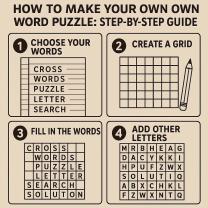What are the different types of business writing courses?
Online business writing courses cater to various aspects of professional communication, helping individuals enhance their writing skills for the workplace. Here are different types of business writing courses that you may find available online:
Business Writing Fundamentals:
- Overview: Covers the basic principles of effective business writing, including clarity, conciseness, and professionalism.
- Topics: Structure of business documents, grammar and punctuation, tone, and common business communication formats.
Email Writing for Professionals:
- Overview: Focuses specifically on writing effective and professional emails.
- Topics: Email etiquette, structure, tone, and strategies for clear and concise communication in the workplace.
Business Report Writing:
- Overview: Teaches the skills needed to create comprehensive and well-structured business reports.
- Topics: Planning and organizing reports, data presentation, executive summaries, and effective business report writing techniques.
Proposal Writing:
- Overview: Concentrates on the development of persuasive and compelling business proposals.
- Topics: Proposal structure, key components, persuasive writing techniques, and tailoring proposals to specific audiences.
Technical Writing for Business:
- Overview: Targets individuals who need to convey technical information in a clear and understandable manner.
- Topics: Simplifying technical language, creating user manuals, and conveying complex information to a non-technical audience.
Professional Blog and Article Writing:
- Overview: Focuses on writing engaging and informative blog posts and articles for business purposes.
- Topics: Developing a writing style, creating content for target audiences, and optimizing content for online platforms.
Social Media Writing for Businesses:
- Overview: Covers writing strategies for social media platforms to effectively engage with the audience.
- Topics: Crafting engaging social media posts, understanding different platforms, and maintaining a consistent brand voice.
Business Communication Strategies:
- Overview: Explores strategies for effective communication within the business environment.
- Topics: Developing communication plans, addressing various stakeholders, and adapting communication styles for different situations.
Negotiation and Persuasion Writing:
- Overview: Focuses on writing techniques for negotiation and persuasion in a business context.
- Topics: Crafting persuasive messages, negotiation emails, and proposals to achieve desired outcomes.
Grant Writing for Businesses:
- Overview: Targets individuals involved in securing funding for projects or initiatives.
- Topics: Understanding grant application processes, developing compelling grant proposals, and meeting grant requirements.
Business Ethics and Compliance Writing:
- Overview: Addresses the writing requirements related to business ethics and compliance documentation.
- Topics: Creating ethical guidelines, compliance reports, and communicating policies to employees.
These courses are often offered by online learning platforms, universities, and professional development organizations. When choosing a business writing course, consider your specific needs and goals to find a program that aligns with your professional objectives.
What are the various types of business writing courses available?
The world of business writing courses is vast and diverse, catering to different needs and levels of experience. Here's a breakdown of the various types you might encounter:
1. By Skill Level:
- Beginner: These courses focus on the fundamentals of effective business writing, covering core aspects like grammar, punctuation, style, and tone. They're ideal for individuals with limited writing experience or those needing a refresher.
- Intermediate: Elevate your skills with courses on specific types of business writing, such as emails, reports, proposals, and presentations. They may also delve into persuasion techniques, data analysis, and formatting.
- Advanced: Hone your expertise with specialized courses on technical writing, grant writing, legal writing, or specific industry formats. They cater to experienced writers seeking mastery in a particular niche.
2. By Format:
- Online Courses: Access flexible learning with online courses offered by universities, training providers, and independent instructors. You can progress at your own pace and revisit materials as needed.
- Classroom Courses: In-person courses offer interactive learning and direct feedback from instructors. They can be ideal for building relationships and networking with fellow professionals.
- Workshops and Intensives: These concentrated sessions cater to specific business writing needs in a short timeframe. They offer focused exercises, group discussions, and expert guidance.
3. By Focus:
- General Business Writing: Develop versatile skills applicable to various business communication scenarios. These courses cover different writing styles, formats, and tone adjustments depending on the audience.
- Specialized Writing: Deepen your knowledge in specific areas like technical writing, marketing writing, financial writing, or legal writing. Learn industry-specific jargon and formatting requirements.
- Persuasive Writing: Master the art of crafting compelling proposals, sales pitches, and arguments. These courses focus on building strong cases, overcoming objections, and influencing readers.
- Communication Skills: Go beyond writing mechanics and explore effective communication strategies for interpersonal interactions, presentations, and meetings.
4. By Budget:
- Free Courses: Some universities and organizations offer free introductory courses or online resources. They can be a good starting point for beginners on a budget.
- Paid Courses: Prices vary depending on the format, duration, and provider. Higher-priced courses may offer in-depth material, personalized feedback, and industry certifications.
5. Additional Considerations:
- Accreditation: Look for courses accredited by recognized organizations to ensure quality and validity of the training.
- Instructor Credentials: Choose courses taught by experienced and qualified instructors with expertise in business writing and communication.
- Course Reviews: Read student reviews and testimonials to get an idea of the course content, instructor effectiveness, and overall learning experience.
Remember, the best type of business writing course depends on your individual needs, budget, and career goals. Evaluate your current skill level, specific areas you want to improve, and learning preferences to make an informed choice.
I hope this information helps you navigate the diverse landscape of business writing courses and find the perfect one to advance your writing skills and boost your career success!












